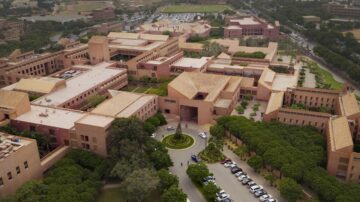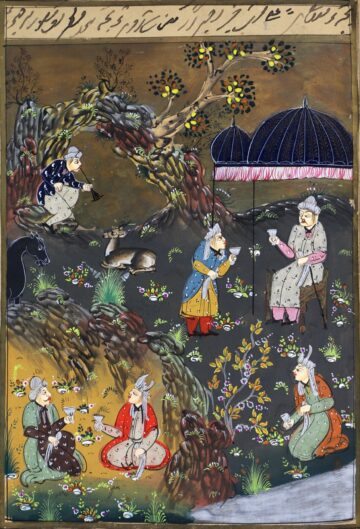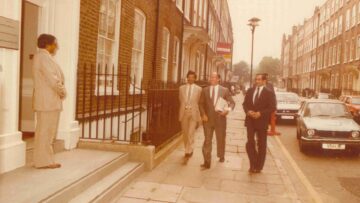The assassins, purportedly a secretive order of extremist mercenaries, have been a literary trope in popular culture since the Crusades, spanning from 12th-century histories and travelogues to comic books and movies today. However, the original tropes were attributed to the political actions of the early NizarisAdherents of a branch of the Ismailis who gave allegiance to Nizar, the eldest son of the Fatimid Imam-caliph al-Mustansir (d. 1094) as his successor. in Syria and Northern Iran. The stories of drug-fuelled indoctrination and secreted blades greatly fantasizes and exaggerates the cases of political assassination credibly associated with the Nizaris.
To its credit, the Western fascination with assassins often turns into historical curiosity, with monumental research from Marshall Hodgson, Wladimir Ivanow, and Bernard Lewis. The Institute of Ismaili Studies has already dedicated two works to the topic — Farhad Daftary’s Assassin Legends and Peter Willey’s Eagle’s Nest, as well as references found in Shayesteh Ghofrani’s Ismailis in Iran, Miklós Sárközy’s The Early Nizari Ismailis and their Neighbouring Powers, and the Secondary Curriculum’s Encounters in Muslim History.
Recently, the legends have taken on a renewed currency in digital media, primarily through the Assassin’s Creed video game franchise (Ubisoft, 2007 onward) and TV shows like Awakening: The Great SeljukSee Saljuq. and Saladin: Conqueror of Jerusalem (Akli Film, 2020 and 2022 respectively) and the most recent The Assassins (Synergy, 2024). IIS hopes to address this in turn with the production of a multi-part, multilingual series of conversations addressing the Assassin Legends.
The first episode of Assassins: Beyond the Legend is now available. Subscribe to our YouTube channel to watch it when it premieres.
This video series was created with the diligent work of the researchers featured on screen. It was filmed and edited by Rehana Virani and translated by Majid Montazer Mahdi and Maha Yaziji. The series features manuscripts sourced from the Ismaili Special Collections Unit with the help of Naureen Ali, Dr Nourmamadcho Nourmamadchoev, and Dr Karim Javan.







